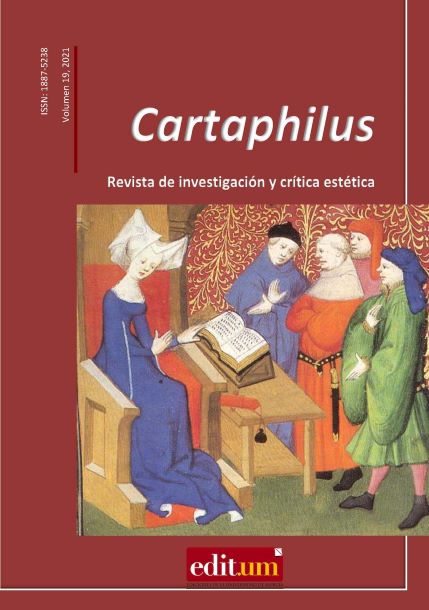Biopolitical writings and rewritings of the argentinian literary canon
Abstract
In order to understand the effects of modernity in nation-state organizations through XIX century, we consider biopolitics –as a Foucauldian category– a thoroughly productive tool for the analysis of the discourses that constitute such territories. The nineteenth-century literary speeches, in our opinion, respond to the biopolitical debates on how to order the bodies, their functioning and the subjectivities that derive from them. The state policies of the nineteenth century and the subsidiary literary discourses will consequently lead to pose lifestyles but, above all, foreign measures for the establishment of the national territory. Throughout texts such as those of Domingo Faustino Sarmiento, Esteban Echeverría and Eugenio Cambaceres, we can realize the articulation of who constitute we and who constitutes the others. These nineteenth-century discourses will resort to the notion of barbarity, affirmed as another excluded figure, to sediment the category of civilization as living lives. Julio Cortázar and Osvaldo Lamborghini will help to demonstrate the persistence or decline of the biopolitical civilizing model in the following century. For such analysis, we will take the Foucauldian proposal and theories that stem from it from theorists such as G. Agamben, G. Giorgi, among others.
Downloads
-
Abstract408
-
PDF (Español (España))583
References
Agamben, Giogio (1995): Homo Sacer. El poder soberano y la nuda vida I. Valencia: Editorial Pre-textos.
Cambaceres, Eugenio (2012): En la sangre. Introducción de Adriana Amante. Buenos Aires: Losada.
Cortázar, Julio (2015): Cuentos completos I. Buenos Aires: Alfaguara.
Echeverría, Esteban (2020): El matadero. La cautiva. (Prólogo de Hernán Pas). Colección Pensamiento del Bicentenario. Buenos Aires: Biblioteca del Congreso de la Nación.
Foucault, Michel (2011): Historia de la sexualidad. 1. La voluntad del saber. México: Siglo Veintiuno Editores.
Galeano, Eduardo (2010): Las venas abiertas de América Latina. México: Siglo Veintiuno Editores.
Giorgi, Gabriel (2014): Formas comunes. Animalidad, cultura, biopolítica. Buenos Aires: Eterna Cadencia Editora.
Kerényi, K. (1972): La religión antigua. Madrid: Revista de Occidente.
Nouzeilles, Gabriela (2000): Ficciones somáticas. Naturalismo, nacionalismo y políticas médicas del cuerpo (Argentina 1880-1910.) Rosario: Beatriz Viterbo Editora.
Sarmiento, Domingo Faustino (1976): Facundo o civilización y barbarie en las pampas argentinas. Centro Editor de América Latina.
Lamborghini, Osvaldo (2003): “El niño proletario”, en Novelas y cuentos I. Buenos Aires: Sudamericana.
Wayar, Marlene (2018): Travesti. Una Teoría lo suficientemente buena. Buenos Aires: Muchas Nueces.
Copyright (c) 2022 Tomás Siac

This work is licensed under a Creative Commons Attribution-NonCommercial-NoDerivatives 4.0 International License.
Works published in this journal are subject to the following terms:
1. The Servicio de Publicaciones of the University of Murcia (the publisher) reserves the copyright of the published works and encourages and allows their reuse under the usage licence indicated in point
© Servicio de Publicaciones, Universidad de Murcia, 2015
2. Works are published in the electronic edition of the journal under a Creative Commons Reconocimiento-NoComercial-SinObraDerivada 4.0 International licence (legal text). They may be copied, used, disseminated, transmitted and publicly displayed, on condition that: i) the author and original source of the publication are cited (journal, publisher and URL of the work); ii) the material is not used for commercial purposes; iii) the existence and specifications of this licence for use are mentioned.

3. Self-archiving conditions We allow and encourage authors to electronically disseminate the preprint versions (the pre-review version) and/or post print (the version that has been reviewed and accepted for publication) of their works before they are published as this encourages earlier circulation and dissemination and so a potential increase in their citation and impact in the academic community.




